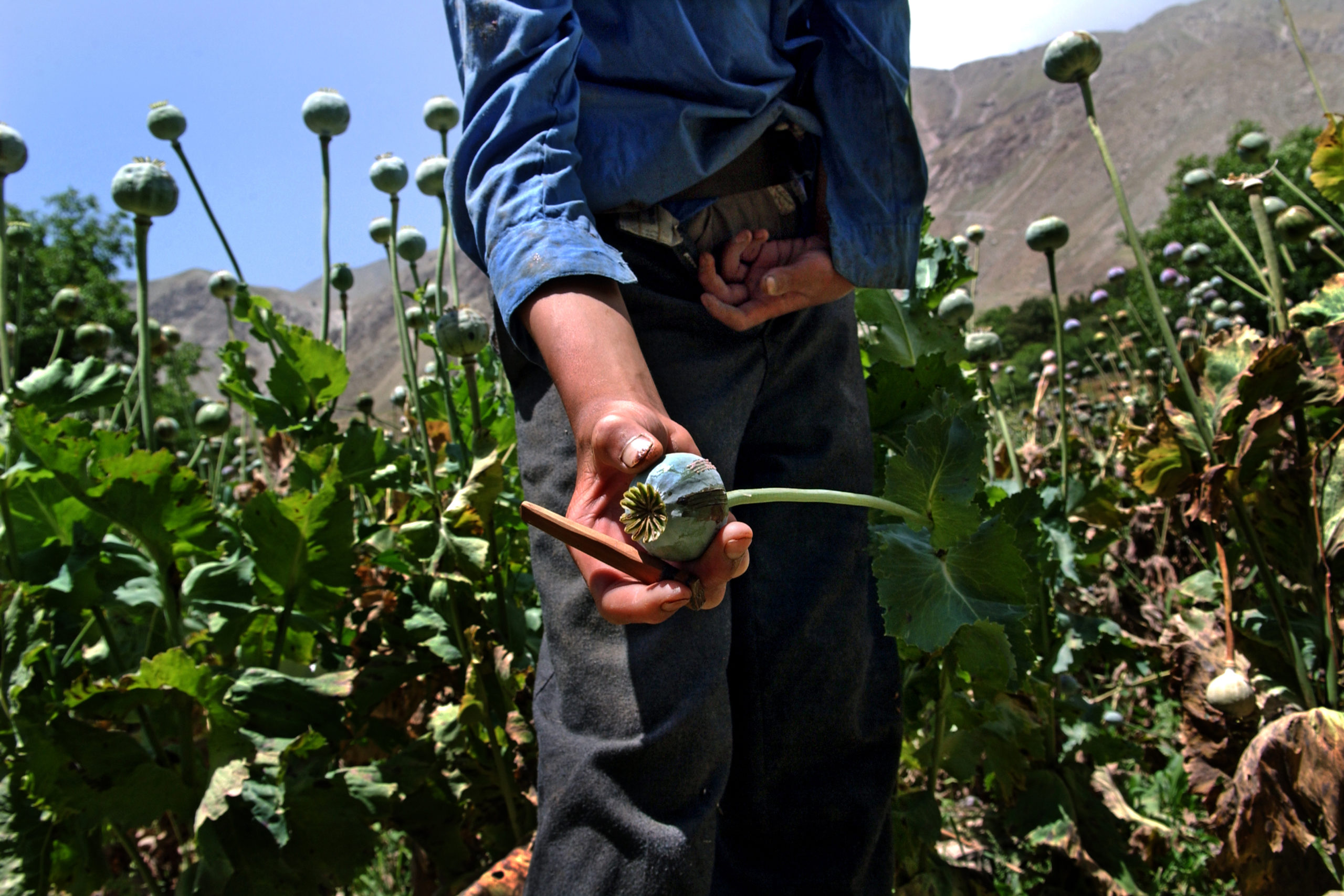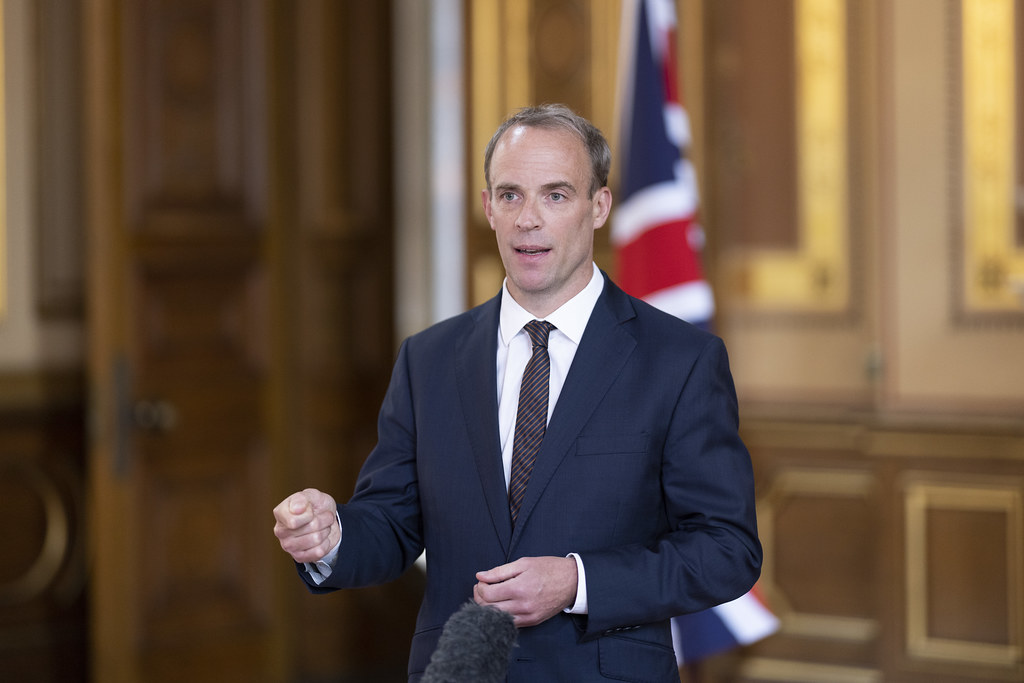“Hindsight is a wonderful thing,” uttered Dominic Raab, Britain’s foreign secretary, as he tried to excuse himself for being on holiday as the Taliban were taking over Afghanistan. General Nick Carter echoed him, saying “hindsight is an extraordinary thing”.
Foresight would have been helpful. It should not have been too difficult. Kabul had become MI6’s biggest foreign station during the occupation of the country.
But Britain was as unprepared for the Afghanistan war as it was for the withdrawal. Military commanders and the intelligence agencies ignored the lessons of three Anglo-Afghan wars fought within the past 200 years — that is, if they had ever bothered to learn them.
Afghan warlords and tribal leaders were fiercely opposed to foreign occupation and were past masters at guerrilla warfare, as they also showed during the Soviet occupation of their country in the 1980s.
The casual, almost flippant approach to Afghanistan adopted by Tony Blair’s government, which began military operations with the US in 2001, was reflected by John Reid, Blair’s defence secretary, who opined in 2006 that British troops would be “perfectly happy” to leave without “firing a shot”. The 20-year conflict was to cost 457 of their lives.
When Blair rushed to impress the Bush administration by promising to deploy thousands of troops to Helmand province of southern Afghanistan in 2004, he did so without even consulting General Dannatt, the head of the army.
Defence ministers were subsequently subjected to mission creep by Blair and privately wondered whether British soldiers in Afghanistan were being killed to protect the UK from terrorism, or to promote “Western democracy” and women’s education.
Liam Fox pointed to the confusion surrounding the aims of the occupation when he commented as defence secretary in 2010: “We are not in Afghanistan for the sake of the education policy in a broken, thirteenth century country”, adding: “We are there so the people of Britain and our global interests are not threatened.”
 US president George W Bush (right) and British prime minister Tony Blair, during a Nato-Russia Council meeting, Rome, 28 May 2002. (Photo: Paul Morse / Courtesy of the George W Bush Presidential Library and Museum)
US president George W Bush (right) and British prime minister Tony Blair, during a Nato-Russia Council meeting, Rome, 28 May 2002. (Photo: Paul Morse / Courtesy of the George W Bush Presidential Library and Museum)
One way to achieve this was to train Afghan security forces and police. British Brigadiers gave UK defence correspondents briefings at the end of their six-month tours of duty commanding Britain’s Helmand Task Force. They painted an increasingly pessimistic picture of the security situation in Afghanistan, and the low morale of those they were trying to train.
More and more Afghan soldiers went AWOL as ever-increasing numbers of them were being killed and were not getting paid by corrupt provincial governors and the government in Kabul.
According to an independent study, the war in Afghanistan had already cost Britain £37-billion by 2013, more than UK government figures claimed, and enough to recruit over 5,000 police officers or nurses and pay for them throughout their careers.
Reflecting a widespread view expressed privately by senior Whitehall officials, the study’s author, Frank Ledwidge, said the real reason Britain expended so much blood and money on Afghanistan was simple: “The perceived necessity of retaining the closest possible links with the US.”
The point was reflected in a comment nine years ago by Sir Simon Gass, then Nato’s senior civilian representative in Afghanistan, but which rings hollow now, that a US-Afghan “strategic partnership” would be the “cornerstone” of Afghanistan’s future security.
Gass is now chairman of the Joint Intelligence Committee, which, according to Raab, assessed that Kabul would be safe until next year.
Gass’ latest task is to negotiate with the Taliban safe passage out of Afghanistan for those UK nationals and Afghans who worked for the British, who have been left behind.
‘We don’t need it, we don’t want it’
Dan Jarvis, a former UK paratrooper who served in Afghanistan and is now Labour MP for Barnsley, described last month how he witnessed “what corruption did to the Afghan security forces and to the political environment under which they operated”.
He added: “Political exclusion and impunity were rife and undermined faith in a fledgling democracy.” That, in turn, “drove people towards the insurgency and further fuelled conflict”.
The US and Britain, he added, “turned a blind eye to strongmen engaged in land grabs and murders, to a colossal bank fraud that threatened the entire economy and to widespread electoral fraud”. Large sums were paid to self-serving and corrupt warlords.
 Personnel from 904 Expeditionary Air wing and the Joint Force Support Unit based at Kandahar Air Field in Afghanistan head back to the UK on a Royal Air Force C17 Globemaster aircraft, 13 November 2014. (Photo: UK Ministry of Defence)
Personnel from 904 Expeditionary Air wing and the Joint Force Support Unit based at Kandahar Air Field in Afghanistan head back to the UK on a Royal Air Force C17 Globemaster aircraft, 13 November 2014. (Photo: UK Ministry of Defence)
Corruption is the recurring theme that runs through the US journalist Andrew Cockburn’s brilliant journalism collected in The Spoils of War: Power, Profit and the American War Machine, his new book published later this month.
John Sopko, the US Special Investigator for Afghanistan Reconstruction, told Cockburn how a significant proportion of the $100-billion officially devoted to the reconstruction of Afghanistan was lost to fraud, waste and abuse.
Hundreds of millions of dollars paid to consultants and contractors remain unaccounted for.
Cockburn describes the construction of a new building at Camp Leatherneck, a US base in Helmand. Three generals on the ground advised: “We don’t need it, we don’t want it, we’re not going to use it, don’t build it.”
They were overruled, Cockburn writes, by a general, who, sitting back in a comfortable office, said simply: “Well, since it was a supplemental appropriations [sic] it would be unwise or imprudent to ignore the wishes of Congress.”
Another example was the US agriculture department spending $36-million to create a soy programme for Afghan farmers. The trouble, Cockburn notes, was that “the Afghans don’t grow soy... they don’t like the taste of soy”.
The one success story, he writes, is opium. But not in the way intended. Quite the opposite, in fact.
During the Anglo-American occupation, the opium poppy became a prosperous growth industry for the Taliban and warlords alike, despite the US spending $48-billion trying to eradicate it.
Meanwhile, Blair confidently said at the start of the conflict that Britain would take the lead in eradicating Afghan opium poppies, the source of the bulk of heroin reaching the UK, in a programme costing British taxpayers some £100-million.
In fact, Afghanistan’s opium harvest soared to record levels.
A centre of the Afghan opium trade is the town of Sangin in Helmand, which had been the scene of a major battle in 1878, in the second Anglo-Afghan War. More than a century later, over a hundred British soldiers were killed there in the latest war.
When some years ago I asked a senior British official based in Kabul about eradicating opium, he replied simply that it was a “very difficult problem”.
But Cockburn describes how the US air force praised the anti-opium role played by F22 Raptors, a fifth generation stealth fighter costing in excess of $400-million each. The real reason for using such a hugely expensive plane to destroy drug labs costing $500, he suggests, was to show the Raptor had at least some use — it played no combat role at all in the war in Afghanistan.
 A close-up of an opium poppy in Afghanistan.
A close-up of an opium poppy in Afghanistan.
Dirtiest secret
What Cockburn calls the “dirtiest open secret of US foreign policy, never entirely concealed but continually obscured by half-truths and outright lies”, was the embrace and support of militant Islamic fundamentalism.
The CIA had poured money into the coffers of mujahideen commanders who had fought Soviet troops in Afghanistan in the 1980s, and later made deals with the Taliban when they were in power in the 1990s.
Cockburn also describes how the US became intimately involved in raising money and recruits for jihad. It wasn’t only in Afghanistan. Even less known — and more concealed — is how the US, with its allies Turkey and Saudi Arabia, cooperated with jihadist groups including those linked to Al-Qaeda fighting against forces loyal to the Syrian president, Bashar al-Assad.
The CIA secretly funded a $1-billion programme, code-named Timber Sycamore, to support anti-Assad forces, including extreme Islamist groups.
While such US activities were hidden or glossed over in the US, similar activities by the British government and UK forces are protected by even greater secrecy. Not always successfully. Declassified’s editor, Mark Curtis, recently revealed how Britain has spent hundreds of millions of pounds supporting the Syrian opposition and how extremist armed groups can benefit from British aid.
The scandals Cockburn highlights apply to Britain as much as to the US. They include the spiralling cost and performance of the F-35 fighter, the increasing reliance on armed drones and huge weapons sales to Saudi Arabia, despite that country’s appalling human rights abuses and its record of funding Wahhabi-inspired extremist groups. They also include what Cockburn calls “a strangely invisible military establishment”.
The media in Britain could learn from, indeed be inspired by the best of US journalism, which admittedly is helped by a more effective Freedom of Information Act (FOIA) than Britain’s. Now, the Johnson government wants to make Britain’s FOIA even weaker and more open to abuse by Whitehall officials than it is already.
A fine example of what US journalistic perseverance can achieve is the Afghanistan Papers, what the Washington Post called “At War with the Truth”, released under the American FOIA to the newspaper’s journalist, Craig Whitlock, after a three-year legal battle.
The trove of government documents, based on interviews carried out by John Sopko, revealed how US officials made optimistic announcements they knew to be false, concealing unmistakable evidence that the war had become unwinnable.
This example, and Cockburn’s book, should encourage parliamentarians and journalists in Britain to force an essential, speedy but thorough independent public inquiry into Britain’s latest adventure in Afghanistan. DM
Richard Norton-Taylor was The Guardian’s defence correspondent and its security editor for three decades and is the author of several books, most recently The State of Secrecy.
Follow Declassified on Twitter, Facebook and YouTube. Sign up to receive Declassified’s monthly newsletter here.
You can become a member and supporter of Declassified by visiting here.




 A close-up of an opium poppy in Afghanistan.
A close-up of an opium poppy in Afghanistan.